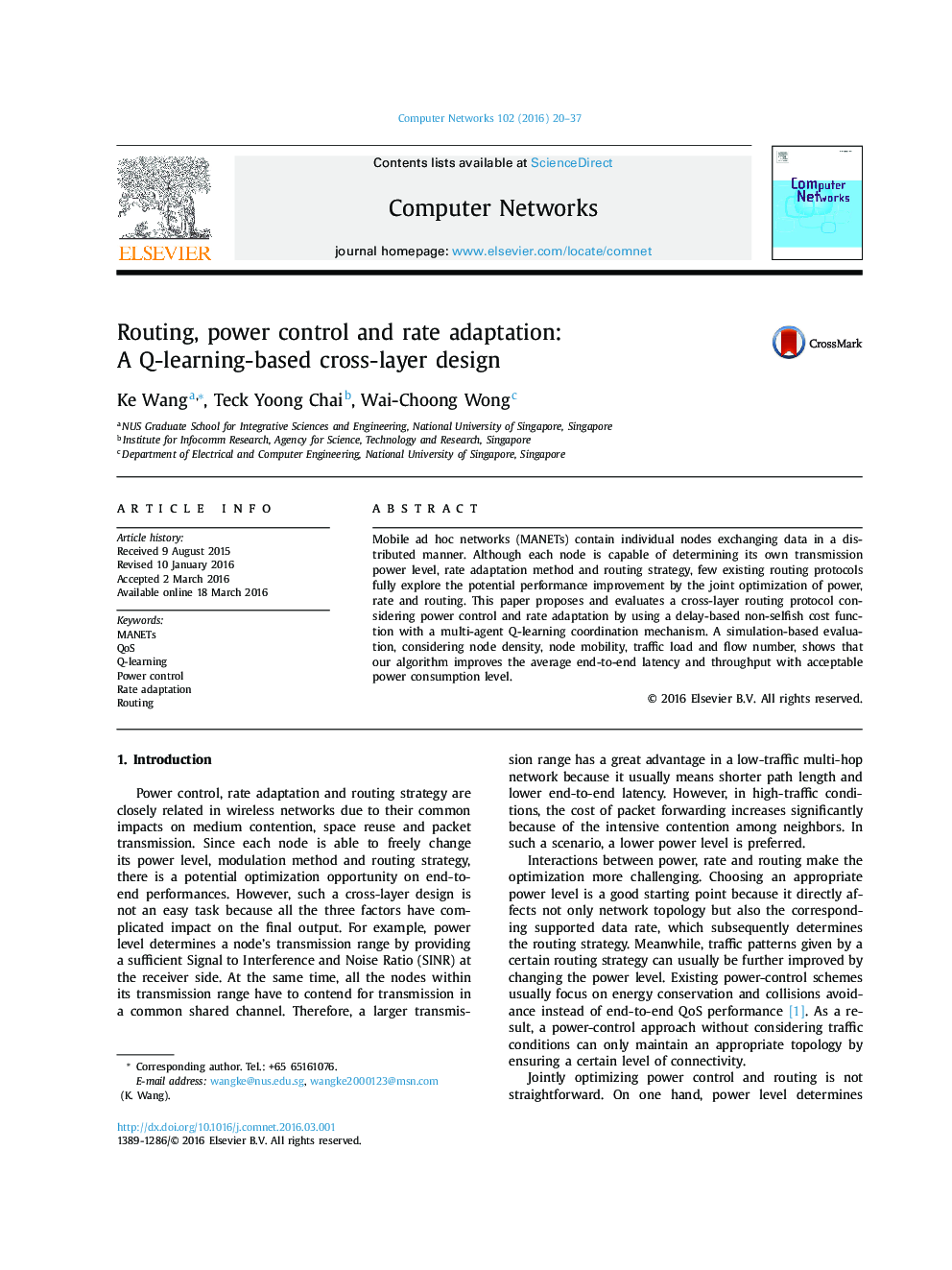| Article ID | Journal | Published Year | Pages | File Type |
|---|---|---|---|---|
| 451636 | Computer Networks | 2016 | 18 Pages |
Mobile ad hoc networks (MANETs) contain individual nodes exchanging data in a distributed manner. Although each node is capable of determining its own transmission power level, rate adaptation method and routing strategy, few existing routing protocols fully explore the potential performance improvement by the joint optimization of power, rate and routing. This paper proposes and evaluates a cross-layer routing protocol considering power control and rate adaptation by using a delay-based non-selfish cost function with a multi-agent Q-learning coordination mechanism. A simulation-based evaluation, considering node density, node mobility, traffic load and flow number, shows that our algorithm improves the average end-to-end latency and throughput with acceptable power consumption level.
